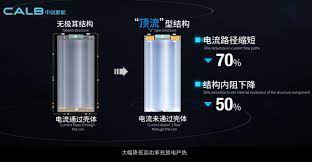
Exploring the Future of Battery Technology: Innovations and Advancements
The Evolution of Battery Technology: Powering the Future
Battery technology has come a long way since its inception, revolutionizing the way we power our devices and vehicles. From early lead-acid batteries to the latest advancements in lithium-ion technology, batteries have become smaller, lighter, and more efficient over time.
One of the most significant breakthroughs in battery technology has been the development of lithium-ion batteries. These rechargeable batteries are now widely used in smartphones, laptops, electric vehicles, and even grid energy storage systems. They offer high energy density, longer cycle life, and faster charging capabilities compared to traditional battery types.
Researchers and engineers are constantly working on improving battery technology to meet the increasing demand for energy storage solutions. From solid-state batteries to flow batteries, new types of batteries are being developed to address specific needs such as longer range for electric vehicles or higher capacity for renewable energy storage.
Advancements in battery technology have also played a crucial role in enabling the transition to a cleaner and more sustainable future. Electric vehicles powered by lithium-ion batteries help reduce greenhouse gas emissions and dependence on fossil fuels. Grid energy storage systems using advanced battery technology allow for better integration of renewable energy sources like solar and wind power.
Looking ahead, the future of battery technology holds even more exciting possibilities. Researchers are exploring concepts such as solid-state electrolytes, sodium-ion batteries, and even quantum battery technologies that could further improve energy storage performance and sustainability.
As we continue to rely more on portable electronics, electric vehicles, and renewable energy sources, advancements in battery technology will be key to meeting our growing energy needs while minimizing environmental impact. The evolution of battery technology is indeed powering the future towards a cleaner, more efficient world.
Top 5 Advantages of Modern Battery Technology
- 1. High energy density
- 2. Rechargeable
- 3. Versatile applications
- 4. Environmentally friendly
- 5. Improved efficiency
Challenges and Environmental Concerns in Modern Battery Technology
- Limited energy density compared to fossil fuels, resulting in shorter driving range for electric vehicles.
- Environmental concerns related to the mining and disposal of lithium-ion batteries, including resource depletion and toxic waste.
- Challenges with battery recycling and disposal methods, leading to potential pollution and waste management issues.
1. High energy density
Battery technology offers the significant advantage of high energy density, enabling the storage of a considerable amount of energy in a compact space. This feature is particularly beneficial in various applications, such as smartphones, electric vehicles, and portable electronic devices, where space is limited but energy requirements are high. The ability to store a large amount of energy in a small and lightweight battery not only enhances the efficiency and performance of these devices but also contributes to their portability and convenience for users. High energy density provided by battery technology plays a vital role in powering our modern world while maintaining a compact and manageable form factor.
2. Rechargeable
One significant advantage of battery technology is its reusability through recharging. The majority of modern batteries are designed to be rechargeable, providing a convenient and cost-effective power source for various devices and applications. This feature not only eliminates the need for frequent replacements but also helps reduce waste, making rechargeable batteries an environmentally friendly choice. With the ability to be recharged multiple times, users can enjoy sustained use of their devices without constantly purchasing new batteries, ultimately saving both money and resources in the long run.
3. Versatile applications
Battery technology offers versatile applications, powering a diverse array of devices ranging from smartphones and laptops to electric vehicles and grid energy storage systems. The ability of batteries to provide reliable and portable energy solutions across various sectors highlights their adaptability and importance in our modern world. Whether it’s enhancing our daily communication through mobile devices or driving the shift towards sustainable transportation and renewable energy integration, batteries play a crucial role in powering a wide range of applications that drive progress and innovation.
4. Environmentally friendly
Advancements in battery technology have significantly contributed to environmental sustainability by offering more eco-friendly options that lessen our dependence on fossil fuels. By enabling the widespread adoption of electric vehicles and grid energy storage systems, these advancements help reduce greenhouse gas emissions and promote a cleaner, greener future. The shift towards using batteries as a more sustainable energy storage solution not only benefits the environment but also plays a crucial role in mitigating climate change and preserving our planet for future generations.
5. Improved efficiency
One of the significant advantages of new battery technologies is their improved efficiency. With faster charging times, longer cycle life, and overall better performance, these advancements have revolutionized how we power our devices and vehicles. Compared to older battery types, the latest technologies not only enhance user experience by reducing downtime but also contribute to a more sustainable and efficient use of energy resources.
Limited energy density compared to fossil fuels, resulting in shorter driving range for electric vehicles.
One significant drawback of current battery technology is its limited energy density when compared to fossil fuels, leading to a shorter driving range for electric vehicles. While lithium-ion batteries have made great strides in improving energy storage capacity, they still fall short of the energy density provided by gasoline or diesel fuels. This limitation poses a challenge for electric vehicle manufacturers in extending the range of their vehicles and addressing consumer concerns about range anxiety. As researchers continue to explore new battery technologies and materials, overcoming this con remains a critical focus in advancing the adoption of electric vehicles as a sustainable transportation option.
Environmental concerns related to the mining and disposal of lithium-ion batteries, including resource depletion and toxic waste.
One significant con of battery technology, particularly with lithium-ion batteries, is the environmental impact associated with their production and disposal. The mining of materials such as lithium, cobalt, and nickel for these batteries can lead to resource depletion and environmental degradation. Additionally, the disposal of lithium-ion batteries poses a challenge due to the release of toxic chemicals and heavy metals into the environment if not properly managed. Addressing these environmental concerns related to the mining and disposal of lithium-ion batteries is crucial in ensuring a sustainable approach to energy storage solutions.
Challenges with battery recycling and disposal methods, leading to potential pollution and waste management issues.
One significant con associated with battery technology is the challenges related to battery recycling and disposal methods. Improper handling of used batteries can lead to potential pollution and waste management issues. Many batteries contain toxic chemicals and heavy metals that can be harmful to the environment if not disposed of properly. Inadequate recycling processes can result in these hazardous materials leaching into soil and water sources, posing a risk to ecosystems and human health. Effective battery recycling programs and sustainable disposal methods are essential to mitigate the environmental impact of discarded batteries and ensure a cleaner, healthier future for all.

